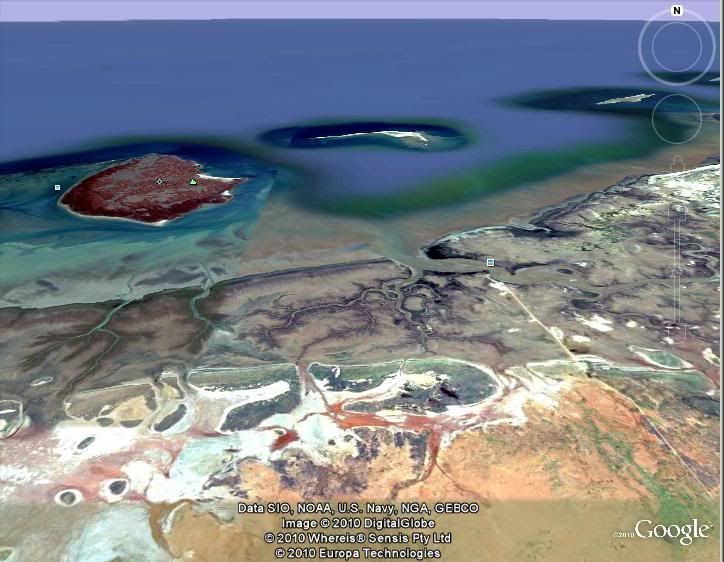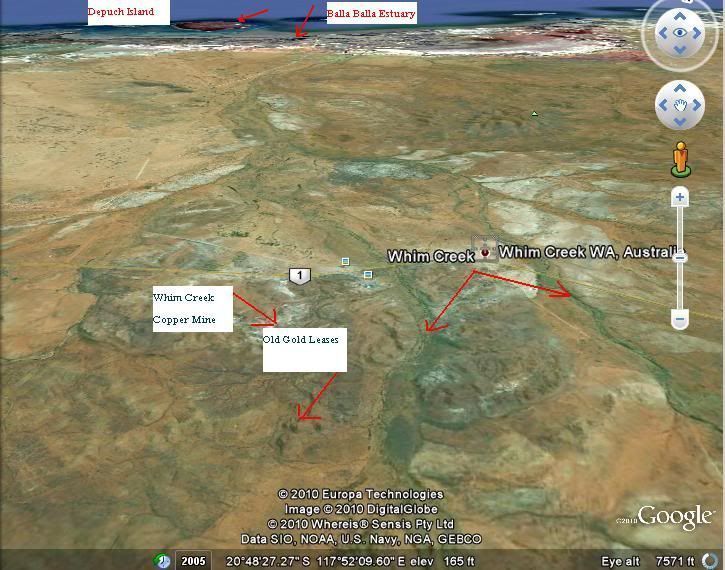Lucky Eddie
Sr. Member
- #1
Thread Owner
I have a theory, bout finding gold located under the ocean!
Most continents including our big island one down under, have a continental shelf located from say 1 to 30 or 40 miles offshore.
Depths might go from zero at shoreline to say 200 feet at the shelf edge.
It's apparent that sea levels rose a couple hundred feet, in some eons past and inundated what was hithertoo dry land.
Where in this country we have large and known proven gold reserves not unike Canada and Alaska, there are known rivers that cross the land, many of them now dry most years nless a cyclone comes - they have been explored and mined or the alluvial gold that gets carried down them, and deposited when the river slows or bends or has a rock bar etc - and gold falls out of suspension, and remains in locations that miners and gold detectorists etc know from experience too look.
However - where eons ago these very same gold rich river beds traversed what is now the short continental shelf area, the subsequent inundation of the sea has prevented land based gold prospectors from continuing to search these now inundated old river beds.
I figure that the area of old river bed thats close to the new shoreline, might be shallow and sometimes calm enough, to be able to either dive, with water proof detectors, or perhaps to dregde and sluice for Gold that was deposited before the sea levels rose, and has now sat there undisturbed ever since with just the normal sea silt depositing on top over the eons.
With the proffesional 3d sea mapping use by commercial mariners and oceanography resources and even google earth ocean bottom mapping, it might be possible now to locate areas shallow enough & close enough to shore to be worth exploring for Gold.
I have the boat and dive gear and a couple trained / qualified lads etc to work with me and knowledge of the right sort of gold bearing rivers, to maybe explore some of the near shore old riverbed for gold.
There are many obstacles, like not knowing what sort of dredge / sluicing gear might work with my paricular vessel, andwhat of any environmental controls there are on dredgng sluicing sea floor for minerals.
Even the application process for approval to mine the sea floor is rather unclear.
Then there are the "other factors" such as crocks, sharks, huge tidal movement (30 feet twice a day) that makes visibility impossible anften times scuba unuseable, in the areas I have in mind where the MOST gold is likely to be recovered!.
I shudder at the thought of:-
A) wasting time and many $ re inventing equipment that someone else has already done.
B) wasting a LOT of time and $ gaining the requisite knowledge and experience, too get good at the effort.
Does anyone KNOW of anyone thats done this kind of work, from whom i could learn wha i need to know as part of my background research.
Most likely due to cyclone season and weather tides etc the BEST locations, might be "seasonal options" probably not unlike findning treasure on wrecks in many locations round the world.
I would seriously consider taking on a partner / partners / (investors?) who would want too come down under during maybe your winter (our summer) to be involved and contribute knowledge experience etc while I contribute the boat and dive gear, crew and local knowledge, to make it work and be a viable seasonal 'holiday downunder" for peeps from the northern hemisphere to escape winter and dive some remote pristine areas and hopefully make a few $ from gold we might find along the way.
I've a fair bit of experience (100 tonne master) and have lived remote on offshore islands etc sometimes for 12 months at a time.
My boats a 28 ft commercial pilot house with twin 115Hp 4 stroke Hondas, and I can haul it pretty much anywhere, with the F250 4x4.
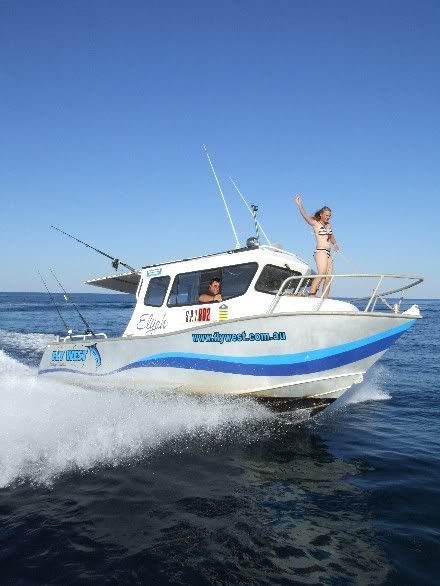
Boat
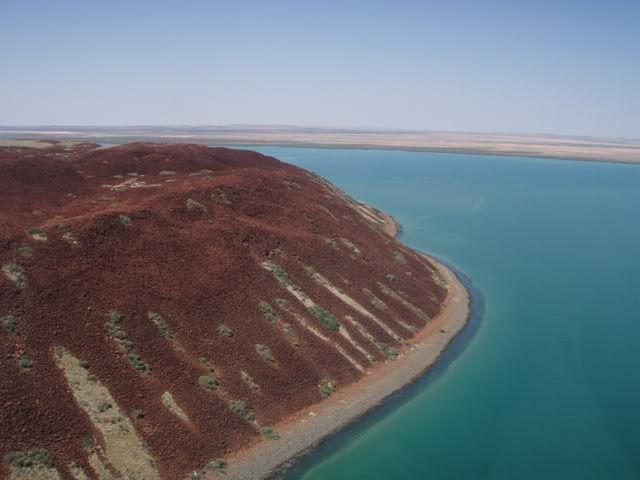
Known Gold Bearing Area
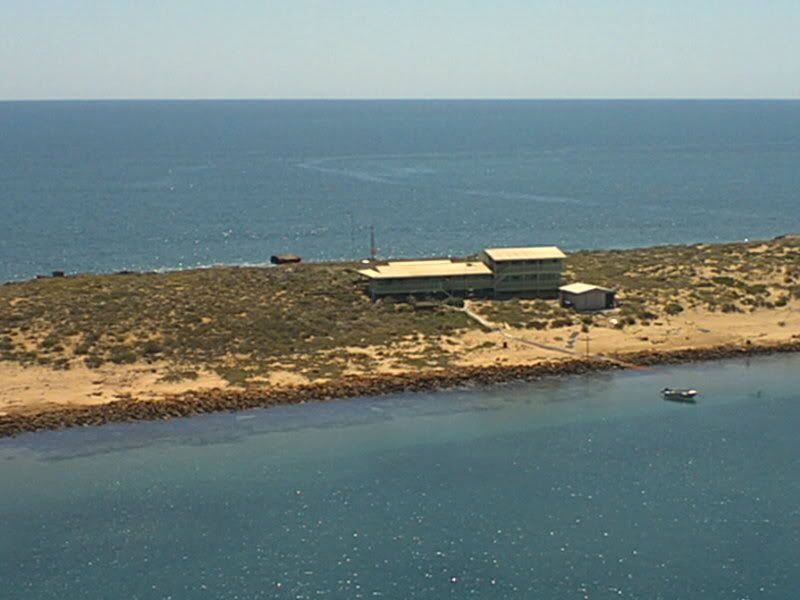
Sometimes we might stay at remote Island accoms
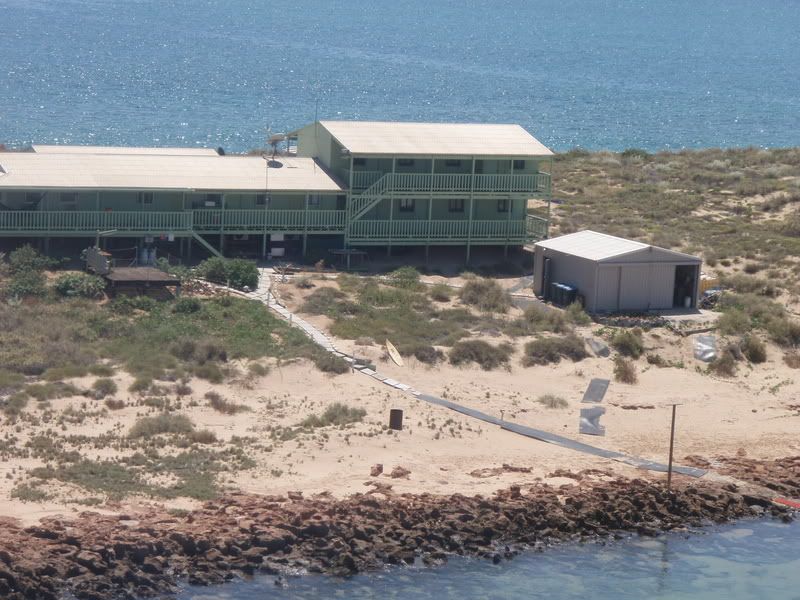
Remoteness is the key thing - being away fromanyone else with the same idea.
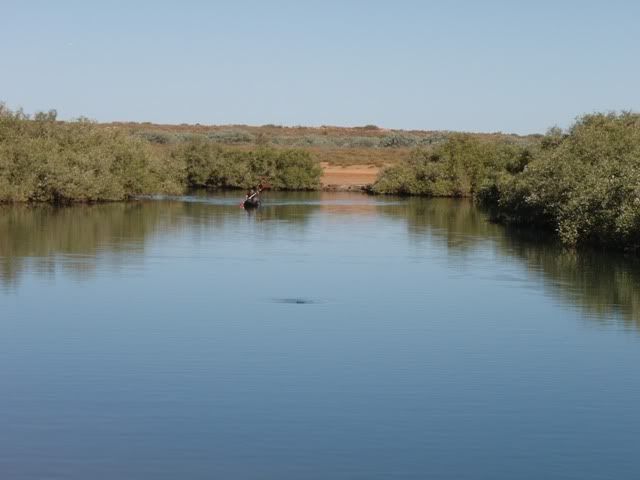
Maybe even work in some of the river estuaries
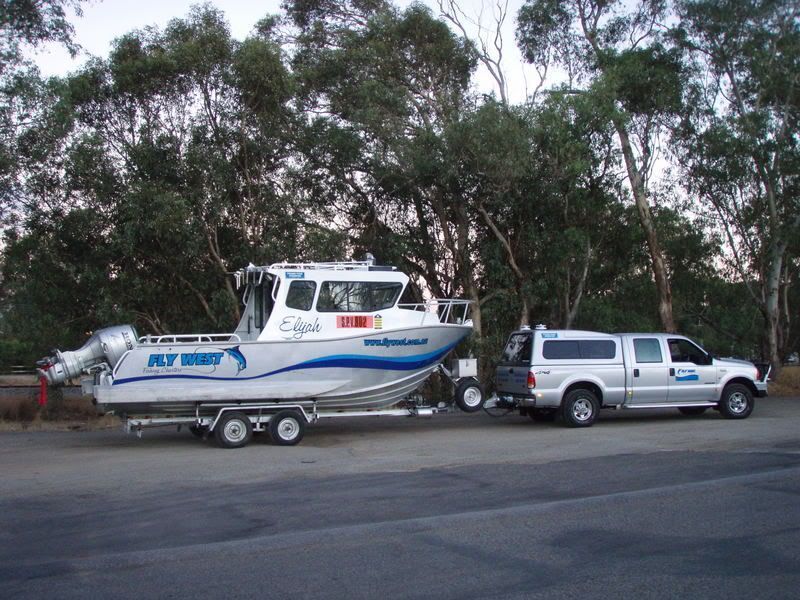
Move to the most productive areas at the right time.
I know some of you are thinking - why not just find wrecks?...but here they are all protected by legislation and everything belongs to the crown.
Finding minerals (Gold diamonds etc) is a different story hence the the attraction.
So how do i go about realizing this dream, finding the right people, and experience and equipment?
Has anyone walked down thos particular rice paper trail?
Is there anything fundamental I've overlooked, that has prevented others doing this already?
What gave me the idea, was somone got their anchor stuck in an area I was living offshore on this island, and when ot broke free and they hauled it up a pice of rock was stuck between the two flukes and the rock contained about 2 ounces of gold nugget!
A few miles up this river is a commercial copper mine, and the manager would come stay with us on the island and fish, and he was saying that they get both silver and gold in the ore they dig (but copper is their primary target). Some of the leases behind the copper mine go back over 100 years to an old gold rush that opened up the area back in the late 1800's.
The river runs right thru this area of the leases - so must carry minerals down to the river mouth and once it meets the ocean it would stop flowing and the gold must settle out of suspension.
Probably a LOT was deposited before the sea levels rose in what was the old river bed past the island where I lived.
I know theres good gold here too be had - I just don't now how to get at it effectively!
I am all ears if anyone else does.
Cheers
Most continents including our big island one down under, have a continental shelf located from say 1 to 30 or 40 miles offshore.
Depths might go from zero at shoreline to say 200 feet at the shelf edge.
It's apparent that sea levels rose a couple hundred feet, in some eons past and inundated what was hithertoo dry land.
Where in this country we have large and known proven gold reserves not unike Canada and Alaska, there are known rivers that cross the land, many of them now dry most years nless a cyclone comes - they have been explored and mined or the alluvial gold that gets carried down them, and deposited when the river slows or bends or has a rock bar etc - and gold falls out of suspension, and remains in locations that miners and gold detectorists etc know from experience too look.
However - where eons ago these very same gold rich river beds traversed what is now the short continental shelf area, the subsequent inundation of the sea has prevented land based gold prospectors from continuing to search these now inundated old river beds.
I figure that the area of old river bed thats close to the new shoreline, might be shallow and sometimes calm enough, to be able to either dive, with water proof detectors, or perhaps to dregde and sluice for Gold that was deposited before the sea levels rose, and has now sat there undisturbed ever since with just the normal sea silt depositing on top over the eons.
With the proffesional 3d sea mapping use by commercial mariners and oceanography resources and even google earth ocean bottom mapping, it might be possible now to locate areas shallow enough & close enough to shore to be worth exploring for Gold.
I have the boat and dive gear and a couple trained / qualified lads etc to work with me and knowledge of the right sort of gold bearing rivers, to maybe explore some of the near shore old riverbed for gold.
There are many obstacles, like not knowing what sort of dredge / sluicing gear might work with my paricular vessel, andwhat of any environmental controls there are on dredgng sluicing sea floor for minerals.
Even the application process for approval to mine the sea floor is rather unclear.
Then there are the "other factors" such as crocks, sharks, huge tidal movement (30 feet twice a day) that makes visibility impossible anften times scuba unuseable, in the areas I have in mind where the MOST gold is likely to be recovered!.
I shudder at the thought of:-
A) wasting time and many $ re inventing equipment that someone else has already done.
B) wasting a LOT of time and $ gaining the requisite knowledge and experience, too get good at the effort.
Does anyone KNOW of anyone thats done this kind of work, from whom i could learn wha i need to know as part of my background research.
Most likely due to cyclone season and weather tides etc the BEST locations, might be "seasonal options" probably not unlike findning treasure on wrecks in many locations round the world.
I would seriously consider taking on a partner / partners / (investors?) who would want too come down under during maybe your winter (our summer) to be involved and contribute knowledge experience etc while I contribute the boat and dive gear, crew and local knowledge, to make it work and be a viable seasonal 'holiday downunder" for peeps from the northern hemisphere to escape winter and dive some remote pristine areas and hopefully make a few $ from gold we might find along the way.
I've a fair bit of experience (100 tonne master) and have lived remote on offshore islands etc sometimes for 12 months at a time.
My boats a 28 ft commercial pilot house with twin 115Hp 4 stroke Hondas, and I can haul it pretty much anywhere, with the F250 4x4.

Boat

Known Gold Bearing Area

Sometimes we might stay at remote Island accoms

Remoteness is the key thing - being away fromanyone else with the same idea.

Maybe even work in some of the river estuaries

Move to the most productive areas at the right time.
I know some of you are thinking - why not just find wrecks?...but here they are all protected by legislation and everything belongs to the crown.
Finding minerals (Gold diamonds etc) is a different story hence the the attraction.
So how do i go about realizing this dream, finding the right people, and experience and equipment?
Has anyone walked down thos particular rice paper trail?
Is there anything fundamental I've overlooked, that has prevented others doing this already?
What gave me the idea, was somone got their anchor stuck in an area I was living offshore on this island, and when ot broke free and they hauled it up a pice of rock was stuck between the two flukes and the rock contained about 2 ounces of gold nugget!
A few miles up this river is a commercial copper mine, and the manager would come stay with us on the island and fish, and he was saying that they get both silver and gold in the ore they dig (but copper is their primary target). Some of the leases behind the copper mine go back over 100 years to an old gold rush that opened up the area back in the late 1800's.
The river runs right thru this area of the leases - so must carry minerals down to the river mouth and once it meets the ocean it would stop flowing and the gold must settle out of suspension.
Probably a LOT was deposited before the sea levels rose in what was the old river bed past the island where I lived.
I know theres good gold here too be had - I just don't now how to get at it effectively!
I am all ears if anyone else does.
Cheers




